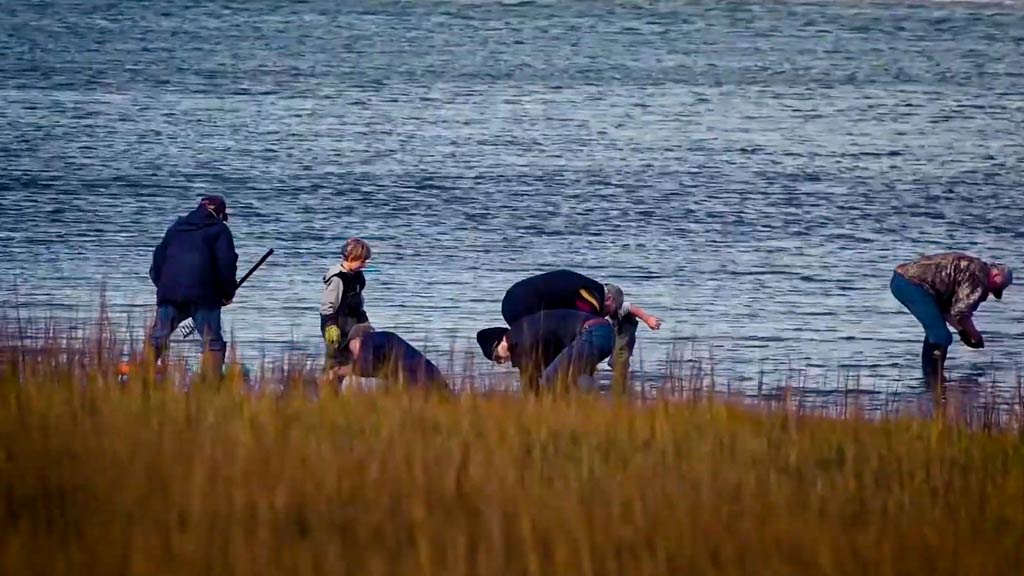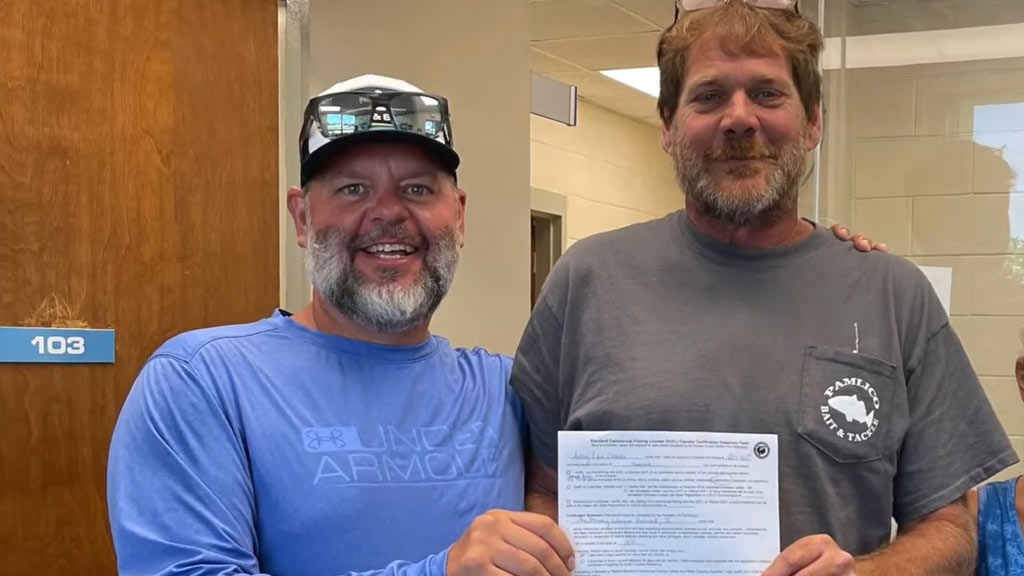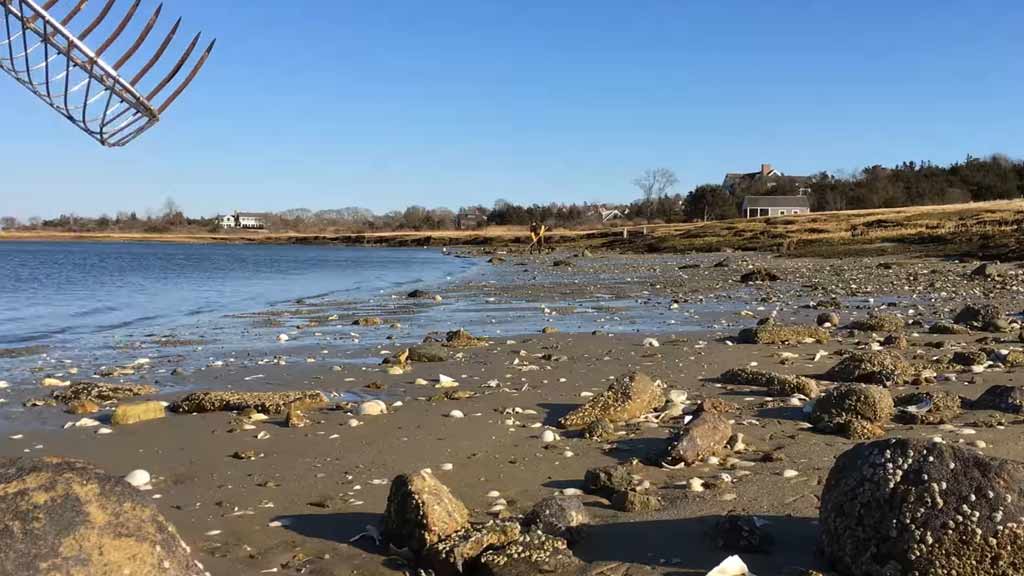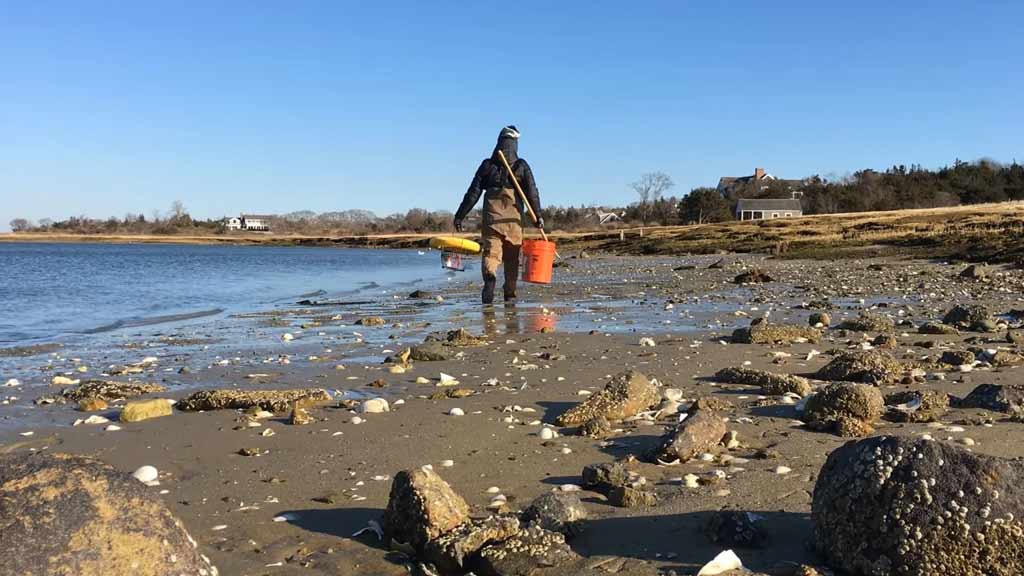In Massachusetts, obtaining a shellfishing license is vital for those keen on harvesting shellfish recreationally.
These licenses, regulated by the Massachusetts Division of Marine Fisheries (DMF), play a pivotal role in managing shellfish harvesting activities to ensure the preservation of the state’s aquatic ecosystems.
Shellfishing licenses are more than mere permits; they represent a commitment to responsible stewardship of coastal resources.
From managing seasonal harvesting to enforcing size and catch limits, the regulations associated with these licenses uphold sustainability principles.
This system fosters a harmonious balance between recreational enjoyment and ecological conservation, ensuring that future generations can continue to relish the rich bounty of Massachusetts’ coastal waters.
What Is a Shellfishing License in Massachusetts?
A shellfishing license in Massachusetts is a permit required for individuals aged 16 and above to harvest shellfish recreationally.
It applies to residents and non-residents and helps manage harvesting activities for sustainability and public health.
Obtained through local government, it entails providing personal information and paying fees. License holders must adhere to regulations on areas, seasons, quantities, and methods of harvesting.
Failure to comply can result in penalties. Commercial licenses are also available for those harvesting shellfish for sale.
Overall, the license ensures responsible shellfish harvesting, protecting both the environment and the long-term availability of these valuable resources.
Shellfishing License Massachusetts Requirements

In Massachusetts, obtaining a shellfishing license is a necessary step for individuals who wish to engage in harvesting shellfish recreationally.
These licenses are designed to regulate and manage the harvesting of shellfish to ensure sustainability and conservation of the state’s aquatic resources.
Here’s an overview of the requirements for obtaining a shellfishing license in Massachusetts:
| Requirement | Details |
| Residency | Massachusetts residents have priority in obtaining shellfishing licenses. Non-residents may also apply but could face additional restrictions or higher fees. This ensures equitable access to shellfishing opportunities while prioritizing local residents’ interests in the state’s natural resources. |
| Age | The minimum age requirement for a shellfishing license in Massachusetts is typically 18 years old. However, special youth licenses or permits may be available for younger individuals to engage in shellfishing activities under proper supervision. These provisions aim to foster a sense of responsibility and stewardship among the next generation of shellfish harvesters, while ensuring their safety and compliance with regulations. |
| Application Process | The application process for a shellfishing license involves completing a form provided by the Massachusetts Division of Marine Fisheries (DMF). This form can be accessed online through the DMF website or obtained from authorized licensing agents across the state. The process is designed to be accessible and straightforward, enabling individuals to apply efficiently and obtain their licenses in a timely manner. |
| Fees | Shellfishing license fees in Massachusetts vary depending on factors such as residency status, age, and whether it’s a new license or a renewal. These fees contribute to funding conservation efforts and the sustainable management of shellfish resources in the state. They help support essential programs aimed at preserving coastal ecosystems and ensuring the long-term viability of shellfish populations for future generations. |
| Education and Training | Some applicants may be required to undergo educational courses or training sessions on shellfishing regulations, conservation practices, and safety guidelines. These programs ensure that license holders are well-informed about their responsibilities and the rules governing shellfish harvesting. By promoting awareness and understanding of best practices, these initiatives support the sustainable management of shellfish resources and their habitats. |
| Compliance with Rules | Applicants must demonstrate their understanding of and commitment to compliance with Massachusetts shellfishing regulations. These regulations cover various aspects, including harvesting seasons, size limits, catch limits, prohibited areas, and gear restrictions. Adherence to these rules is crucial for protecting shellfish stocks and maintaining the ecological balance of coastal environments. Violations can result in fines, license revocation, or other penalties, emphasizing the importance of responsible harvesting practices among license holders. |
| Background Checks | Depending on the DMF’s requirements, applicants may undergo background checks as part of the licensing process. These checks aim to ensure that individuals with a history of fisheries violations or other relevant offenses are not granted a license. By promoting integrity and accountability within the shellfishing community, background checks contribute to the overall sustainability and ethical management of Massachusetts’ aquatic ecosystems. |
| Renewal | Shellfishing licenses in Massachusetts are typically valid for a specific period, after which they must be renewed to remain active. Renewal procedures may involve submitting a renewal application and paying any applicable fees. This ensures that license holders stay informed about current regulations and continue to meet the state’s requirements for responsible shellfishing practices. Renewal processes also provide opportunities for the DMF to update license holders on any changes or developments in shellfishing policies or procedures, promoting ongoing compliance and stewardship of shellfish resources. |
How to Get a Shellfishing License in Massachusetts
Obtaining a shellfishing license in Massachusetts is a straightforward process designed to regulate and manage the harvesting of shellfish while ensuring sustainability and conservation of the state’s aquatic resources.
Here’s a step-by-step guide on how to get a shellfishing license in Massachusetts:
Check Eligibility
Before applying for a shellfishing license, ensure that you meet the eligibility requirements. Typically, applicants must be at least 18 years old, though special provisions may exist for younger individuals.
Additionally, residency requirements may apply, with Massachusetts residents having priority, while non-residents may have to meet certain restrictions or pay higher fees.
Educate Yourself
Familiarize yourself with Massachusetts shellfishing regulations, including harvesting seasons, size limits, catch limits, prohibited areas, and gear restrictions.
Understanding these regulations is essential for responsible shellfish harvesting and compliance with state laws.
Gather Required Documents
Depending on your residency status and any additional requirements set by the Massachusetts Division of Marine Fisheries (DMF), you may need to provide certain documents as part of your license application.
These may include proof of residency, identification documents, and any relevant certifications or training records.
Complete the Application

Obtain an application form for a shellfishing license from the DMF website or designated licensing agents. Fill out the application form accurately and completely, providing all required information and documentation.
Double-check the form to ensure there are no errors or omissions that could delay the processing of your application.
Submit the Application
Once you have completed the application form and gathered all necessary documents, submit your application to the DMF through the designated channels.
This may involve mailing the application to the DMF office or submitting it in person at a licensing agent’s location.
Be sure to include any applicable fees with your application, as outlined by the fee structure for shellfishing licenses.
Undergo Background Checks (if required)
Depending on the DMF’s requirements, you may undergo background checks as part of the licensing process.
This step is to ensure that applicants do not have a history of fisheries violations or other relevant offenses that could disqualify them from obtaining a license.
Attend Educational Courses (if required)
In some cases, applicants may be required to complete educational courses or training sessions on shellfishing regulations, conservation practices, and safety guidelines.
If mandated, make arrangements to attend these courses and obtain any necessary certifications or completion records.
Wait for Approval
After submitting your application, allow time for the DMF to review and process it. Once your application is approved, you will receive your shellfishing license, either by mail or for pick-up at a designated location.
Ensure that you keep your license in a safe and easily accessible place while engaging in shellfishing activities.
Renew Your License
Remember that shellfishing licenses in Massachusetts are typically valid for a specific period. Before your license expires, make sure to renew it following the appropriate procedures outlined by the DMF.
This may involve submitting a renewal application and paying any applicable fees to ensure uninterrupted access to shellfishing opportunities.
Shellfishing License Massachusetts Rules
Shellfishing in Massachusetts is governed by a set of rules and regulations aimed at conserving shellfish populations, protecting their habitats, and ensuring sustainable harvesting practices.
These rules are enforced by the Massachusetts Division of Marine Fisheries (DMF) and are designed to maintain the ecological balance of coastal ecosystems while providing recreational and economic opportunities for residents and visitors.
Here’s an overview of some key rules governing shellfishing licenses in Massachusetts:
Harvesting Seasons

Massachusetts establishes specific harvesting seasons for various shellfish species to prevent overexploitation and allow for natural population replenishment.
These seasons may vary depending on the type of shellfish and geographical location. Harvesters must adhere to the designated seasons and refrain from harvesting shellfish outside of the authorized periods.
Size and Catch Limits
To promote sustainable harvesting practices, Massachusetts imposes size and catch limits on shellfish. These limits specify the minimum size that shellfish must reach before they can be harvested and the maximum quantity that can be harvested per day or per individual.
By adhering to these limits, harvesters help maintain healthy shellfish populations and prevent the depletion of resources.
Prohibited Areas
Certain areas in Massachusetts are designated as off-limits for shellfishing due to environmental concerns, public health considerations, or conservation efforts.
These prohibited areas may include areas with contaminated waters, sensitive habitats, or designated conservation zones.
Harvesters must respect these restrictions and refrain from harvesting shellfish in prohibited areas to avoid potential health risks and ecological damage.
Gear Restrictions
Massachusetts imposes regulations on the types of gear and methods that can be used for shellfishing activities.
These regulations aim to minimize habitat disturbance, prevent bycatch of non-target species, and ensure fair access to shellfish resources.
Common gear restrictions may include limitations on the use of dredges, rakes, or mechanical devices, as well as restrictions on the use of certain types of boats or equipment.
Health and Safety Guidelines

Massachusetts enforces strict health and safety guidelines to protect consumers from the risks associated with consuming contaminated shellfish.
Harvesters must adhere to guidelines related to shellfish handling, storage, and transportation to minimize the risk of foodborne illnesses.
Additionally, harvesters should be aware of potential hazards such as strong currents, inclement weather, or hazardous marine life and take appropriate precautions to ensure their safety while shellfishing.
Licensing Requirements
Individuals engaging in shellfishing activities in Massachusetts must possess a valid shellfishing license issued by the DMF.
Licenses are typically required for both recreational and commercial shellfish harvesting and must be obtained before engaging in any harvesting activities.
License holders are responsible for understanding and complying with all relevant rules and regulations governing shellfishing in Massachusetts.
Reporting Requirements
Harvesters may be required to report their shellfishing activities to the DMF or other relevant authorities for monitoring and management purposes.
Reporting requirements may include submitting catch data, participating in surveys, or providing information on harvesting locations and methods.
Compliance with reporting requirements helps authorities assess the health of shellfish populations, track trends in harvesting activities, and make informed management decisions.
Enforcement and Penalties
Violations of shellfishing rules and regulations in Massachusetts may result in enforcement actions and penalties, including fines, license suspensions, or legal sanctions.
The DMF and other enforcement agencies actively monitor shellfishing activities to ensure compliance with regulations and deter illegal or unethical behavior.
By enforcing rules consistently and effectively, authorities help maintain the integrity of shellfish resources and protect the interests of both harvesters and the environment.
FAQs
What Is the Cost of a Shellfishing License Massachusetts?
The cost of a shellfishing license in Massachusetts varies depending on residency status and permit type, ranging from $25 for residents of certain towns to $120 for non-residents.
Who needs a shellfishing license in Massachusetts?
Anyone wishing to harvest shellfish recreationally in Massachusetts must obtain a shellfishing license from the Division of Marine Fisheries (DMF).
What are the residency requirements for a Massachusetts shellfishing license?
Massachusetts residents have priority, but non-residents can also apply, albeit with possible restrictions or higher fees.
How do I apply for a shellfishing license in Massachusetts?
To apply, complete the application form provided by the DMF, available online or from designated licensing agents across the state.
Are there any educational requirements for obtaining a shellfishing license in Massachusetts?
Some applicants may need to complete educational courses or training sessions on shellfishing regulations, conservation practices, and safety guidelines.
To Recap
Securing a shellfishing license in Massachusetts is not merely a regulatory requirement but a pledge to uphold the sustainable management of the state’s coastal resources.
With varying fees and permit types catering to both residents and non-residents, the licensing system ensures equitable access while promoting responsible harvesting practices.
By adhering to regulations, including size limits and seasonal restrictions, license holders play a crucial role in preserving shellfish populations and their habitats.
Through the collaboration of harvesters, regulatory authorities, and conservation efforts, Massachusetts continues to safeguard its rich marine heritage for present and future generations to enjoy responsibly.
Laura Chassaigne